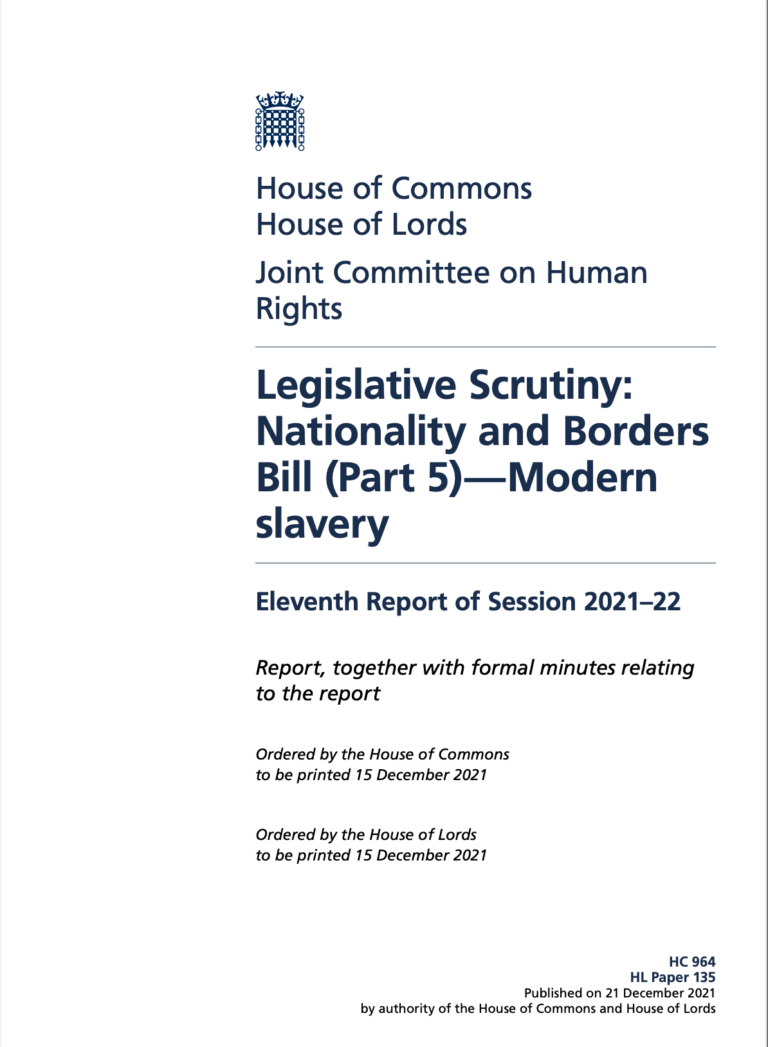Part 5 of the Nationality and Borders Bill makes changes to the law on modern slavery. Some of the provisions place in law processes that are currently contained in policy or guidance, but often with some amendment. Other provisions amend existing statutory requirements, in many instances the protections for victims of slavery or human trafficking would be reduced to the minimum required to still be compatible with the prohibition on slavery in Article 4 of the European Convention on Human Rights (ECHR) and the European Convention Against Trafficking in Human Beings (ECAT).
The changes in Part 5 seem largely capable of being compatible with the UK’s human rights obligations, subject to certain clarifications. However, there are three themes that seem to raise more significant concerns.

